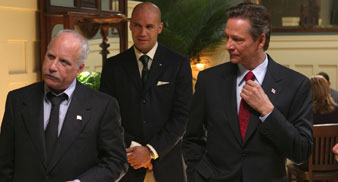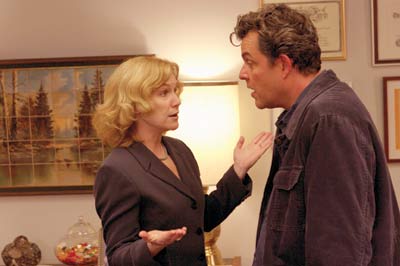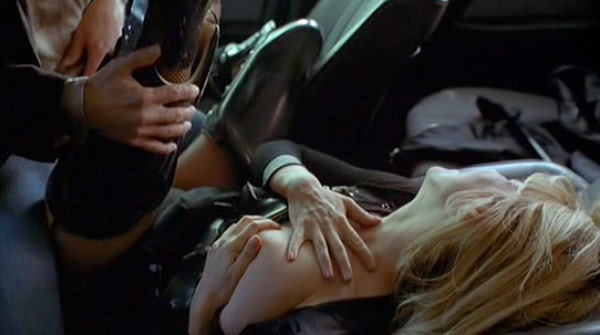Written in October 2012 for what was supposed to have been the first (and, so far, only) translated edition of my most recent collection, although it has never come out. There is, however, a Korean translation of my earlier collection Essential Cinema (with a new Afterword, available here).
In retrospect, I’m sorry that I didn’t find some way of mentioning Lee Chang-dong’s extraordinary Poetry (2010), my favorite Korean film [see all the stills below] — and one that, incidentally, helps to explain the reason for my alienation from most of the other South Korean films I’ve seen and their excessive reliance on rape and serial killers as subjects (something that I was embarrassed to bring up in this Preface, written at the request of the publisher). This film in fact addresses the theme of rape and its role in Korean society quite directly. — J.R.


My acquaintance with cinephilia in South Korea is limited. My only first- hand knowledge comes from my experience as a juror on Indie Vision at the Jeonju International Film Festival in the Spring of 2006 and my acquaintance over a longer period with the brilliant and discerning critic and programmer Un-Seong Yoo, who worked for that festival for many years and, more recently, was my fellow juror on the New Directors jury at the San Sebastian Film Festival in the Fall of 2011. Read more
From the Chicago Reader (September 16, 2004). — J.R.

Silver City
* (Has redeeming facet)
Directed and Written by John Sayles
With Danny Huston, Maria Bello, Chris Cooper, Richard Dreyfuss, Daryl Hannah, James Gammon, Kris Kristofferson, Tim Roth, Mary Kay Place, Billy Zane, Sal Lopez, Ralph Waite, Miguel Ferrer, and Michael Murphy

Almost 60 years ago, in the essay “Politics and the English Language,” George Orwell made observations about bad writing that have lost none of their relevance. “As soon as certain topics are raised, the concrete melts into the abstract and no one seems able to think of turns of speech that are not hackneyed: prose consists less and less of words chosen for the sake of their meaning, and more and more of phrases tacked together like the sections of a prefabricated hen-house,” he wrote. “The attraction of this way of writing is that it is easy. It is easier — even quicker, once you have the habit — to say In my opinion it is a not unjustifiable assumption that than to say I think.”
Ready-made phrases in the news — “smoking gun,” “weapons of mass destruction,” “war on terror” — tend to hurry listeners or readers along instead of encouraging them to think. Read more
From the Chicago Reader (March 21, 1997). — J.R.

CRASH
Rating *** A must see
Directed and written by David Cronenberg
With James Spader, Deborah Kara Unger, Holly Hunter, Elias Koteas, Rosanna Arquette, Peter MacNeill, Yolanda Julian, and Cheryl Swarts.

“Throughout Crash I have used the car not only as a sexual image, but as a total metaphor for man’s life in today’s society. As such the novel has a political role quite apart from its sexual content, but I would still like to think that Crash is the first pornographic novel based on technology. In a sense, pornography is the most political form of fiction, dealing with how we use and exploit each other in the most urgent and ruthless way.
“Needless to say, the ultimate role of Crash is cautionary, a warning against that brutal, erotic and overlit realm that beckons more and more persuasively to us from the margins of the technological landscape.”

These are the last two paragraphs of J.G. Ballard’s introduction to his 1973 novel Crash. They point to a seeming paradox that lies at the heart of David Cronenberg’s masterful film adaptation as well as the original — the idea that pornography, by virtue of being political, can play a cautionary role rather than, or in addition to, a prescriptive one. Read more







